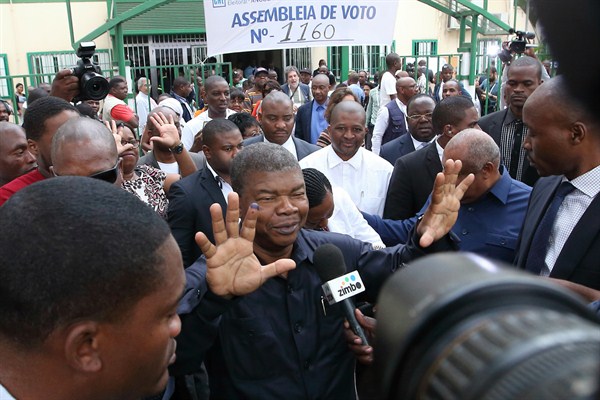Editor’s Note: Every Friday, WPR Senior Editor Robbie Corey-Boulet curates the top news and analysis from and about the African continent.
A year ago, when Joao Lourenco took over as Angola’s president, tensions between his country and the Democratic Republic of Congo were already unusually high. In a Q&A with WPR at the time, Alex Vines, head of the Africa program at Chatham House, described how Luanda’s patience with Congolese President Joseph Kabila had been exhausted by Kabila’s handling of Congo’s political crisis.
The situation has changed somewhat since then. Today, Congo is much closer to holding long-awaited elections—they are scheduled for December—and Kabila will not be on the ballot, meaning that the end of his rocky term is in sight. Yet there are still concerns about whether the vote will be fair, or whether it will instead amount to a coronation for Kabila’s chosen successor, former Interior Minister Emmanuel Ramazani Shadary. If the latter scenario plays out, Congo’s crisis, instead of ending, may merely be entering a new stage.

